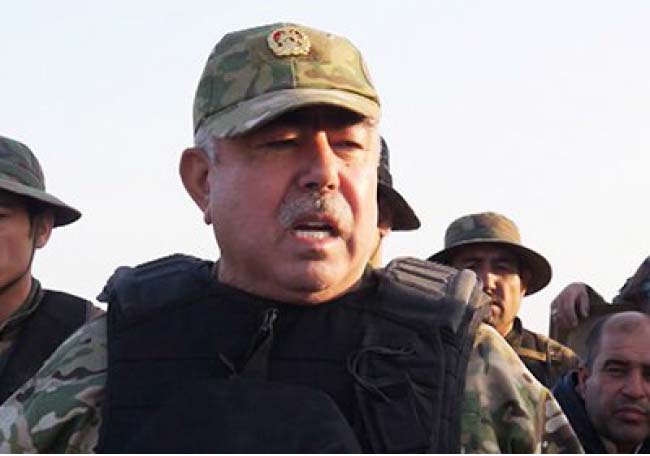KABUL - First Vice President Abdul Rashid Dostum declared on Friday that the newly-established Jihadi Council will be helpful at resolving national issues if it is committed to working with the government in a bid to strengthen the political system.
Referring to recent movement of a number of former Jihadi figures, Dostum made it clear that the council will remain ineffective in solving issues facing the country if the body preferred making decisions without coordinating the government.
"I have respect towards all of them," Dostum said, adding that "if their activities are coordinated with the government, they will be helpful otherwise they will not succeed."
These statements came after unconfirmed reports emerged that the jihadi figures were pushing the government towards convening the Loya Jirga – a grand council rarely being held for big national issues. However the council members refrained from commenting on the issue.
Meanwhile, CEO Abdullah's cultural advisor, Sayed Aqa Fazel Sancharaki supported establishment of jihadi council. He said the council was working to strengthen the country's political system.
"Meetings and consultations of Jihadi leaders and politicians are very helpful. And we know that there had been talks during these meetings on how to strengthen the system," Sancharaki said.
In addition, the committee to oversee implementation of the political agreement between President Ashraf Ghani and Abdullah said that if the council managed its activities in line with the political system, it would likely be proven constructive towards resolving key national issues.
"It is true that Jihadi leaders and political parties are effective platforms. But their activities must be supportive to government," said Mohammad Natiqi, a senior member of the committee.
The council constitutes former Jihadi leader Abdul Rab Rassoul Sayyaf, former defense minister Besmillah Mohammadi, former Jihadi leader and former vice president Mohammad Yunus Qanuni, former defense minister Abdul Rahim Wardak, former minister of economy Abdul Hadi Arghandiwal, former minister of interior Mohammad Omar Daudzai, former Jihadi leader and ex-minister of water and energy Mohammad Ismail Khan and other prominent jihadi figures and leaders of political parties.
The council was established following a sharp increase in insecurity across the country, most specifically, after the fall of Kunduz city to the Taliban. (Tolonews)

